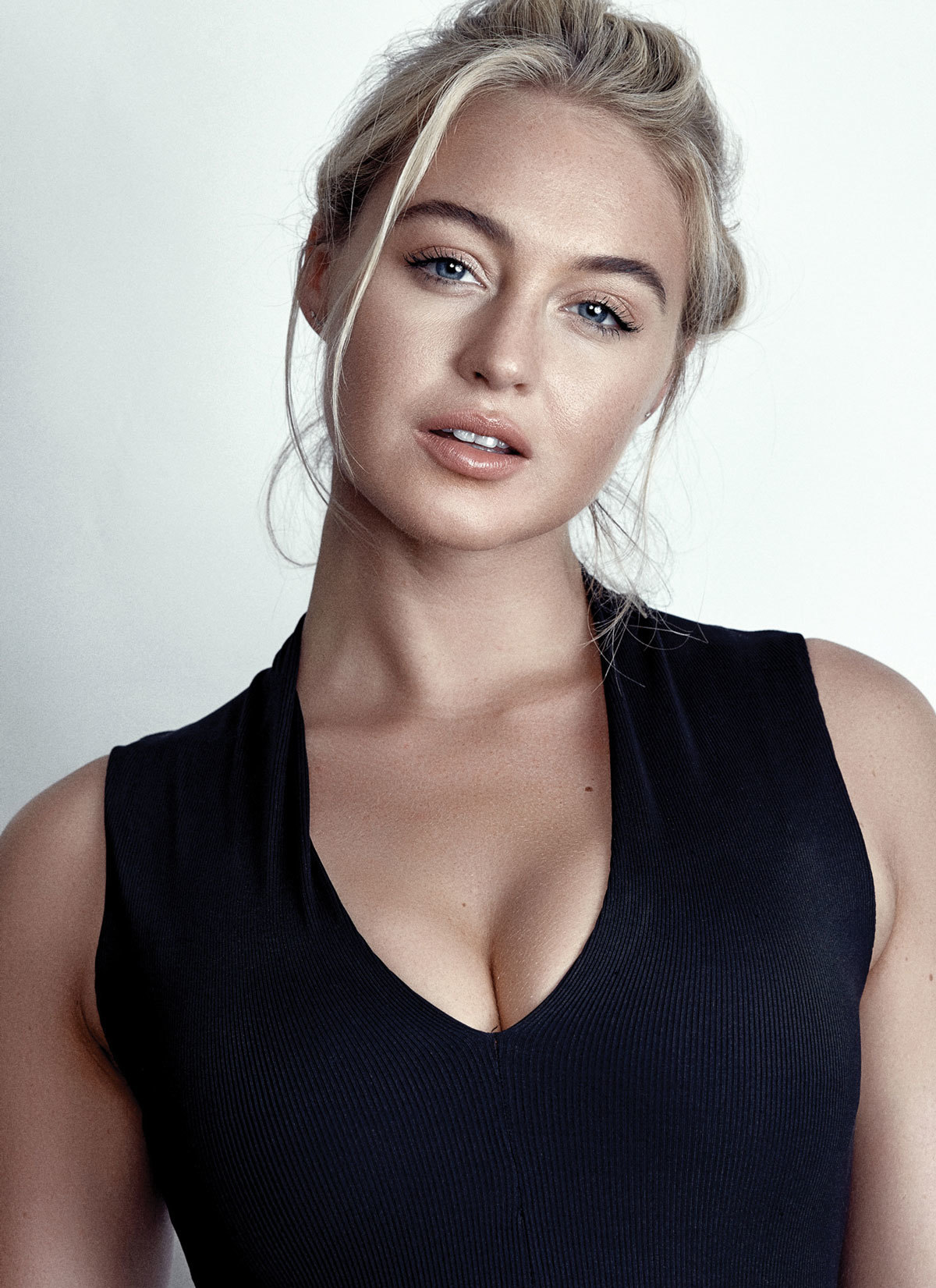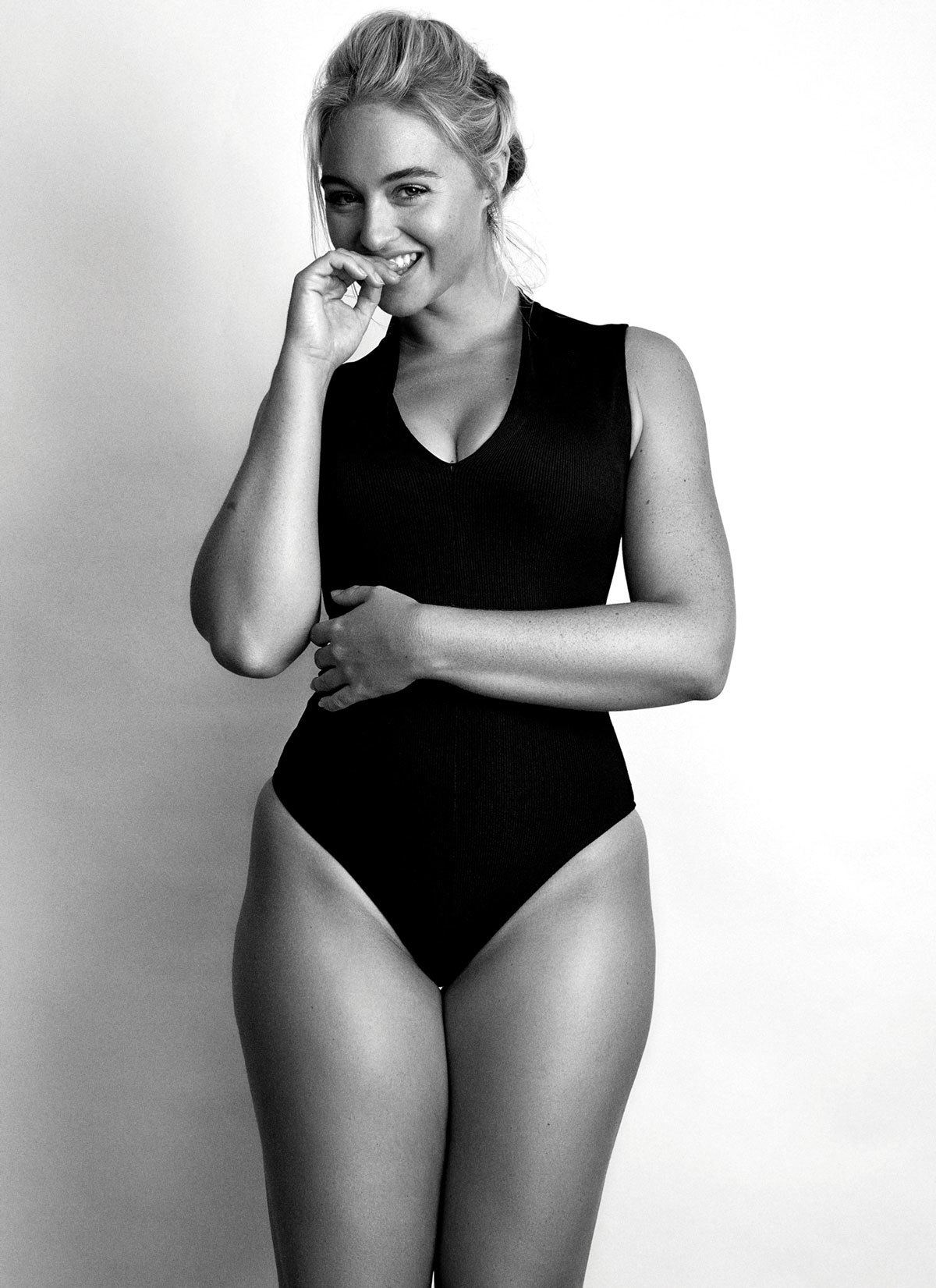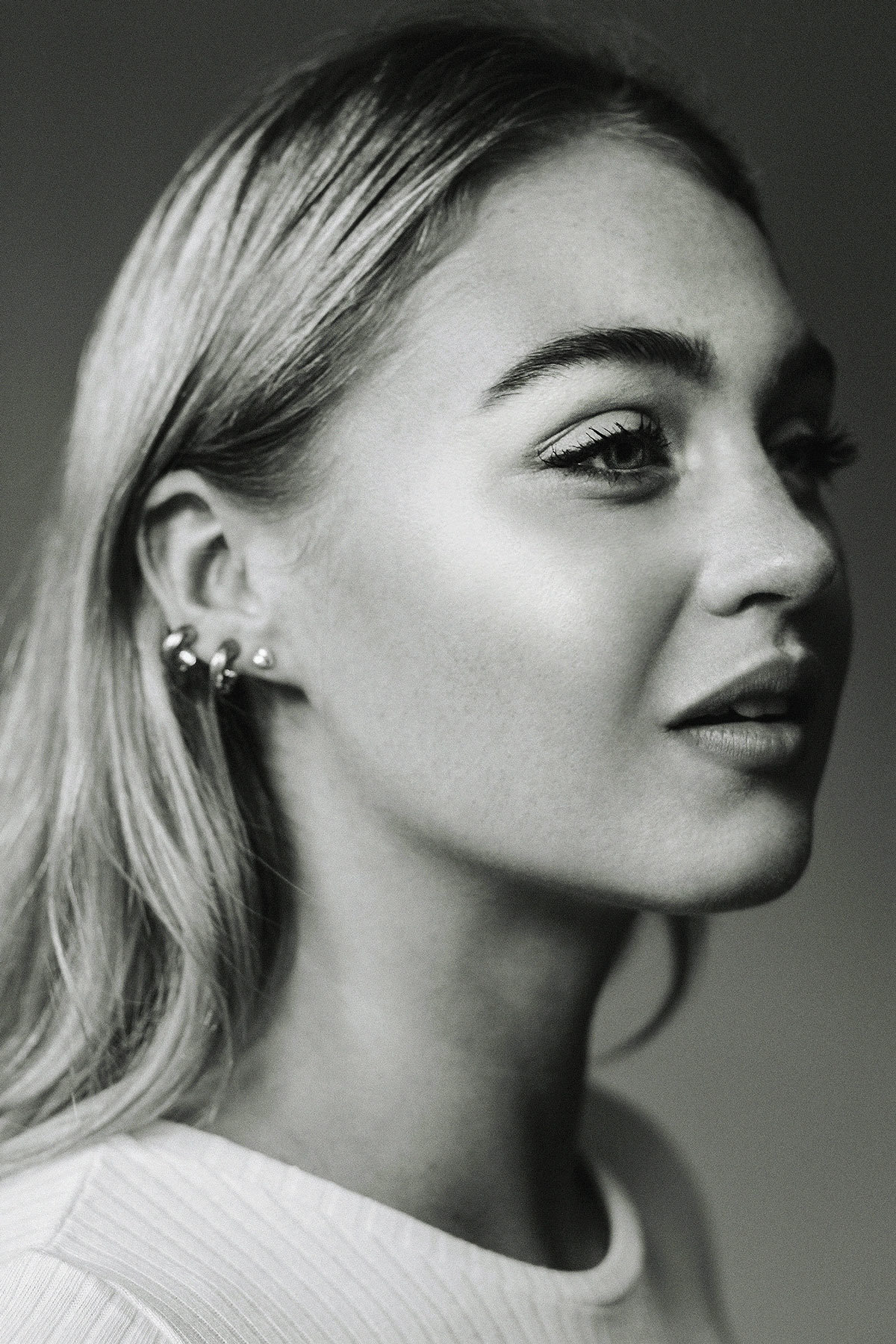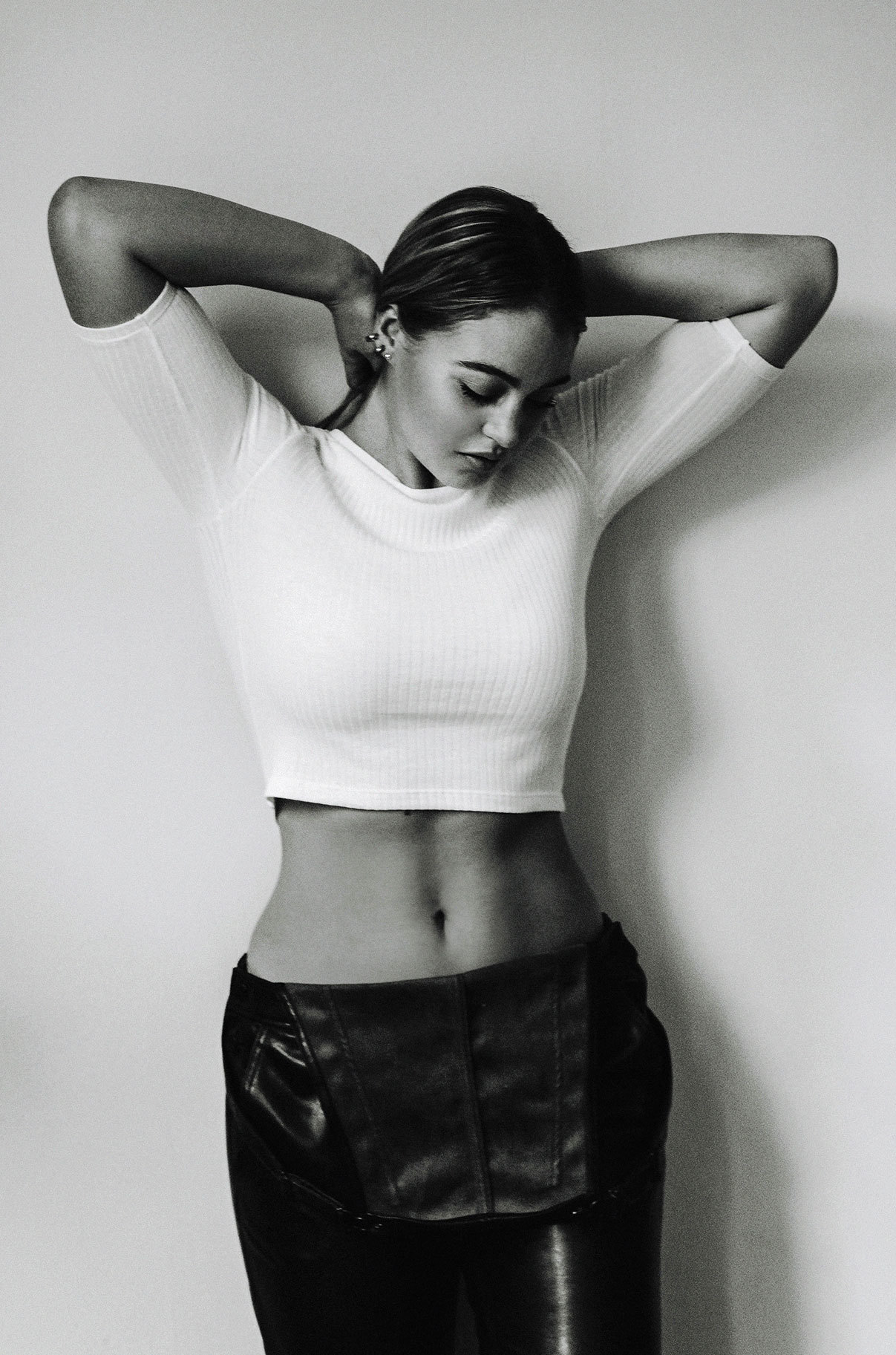Iskra Lawrence is what you might call a body image activist. But not the kind you’re thinking of; unlike the rest of them, Iskra isn’t just in it for the likes, nor is she in it for Daily Online column inches. Having being in the industry for over 12 years, having been rejected by her agency when she started developing natural womanly curves (you know the kind we all get when we hit puberty), having suffered from an eating disorder, having been rejected by plus size modelling agencies for being too thin, Iskra knows a thing or two about body shaming. Which is why she’s trying to do something about it. Not just calling out individual agencies for their one off mishaps, Iskra has teamed up with the National Eating Disorders Association, of which she is now an ambassador, to create NEDA Inspires Seal of Approval, a globally recognised symbol awarded to companies, brands and individuals who promote a healthy body image and who are striving for change. This year she also helped Stylelite’s Dan Abrams set up RunwayRiot, the first online fashion, beauty and shopping site to stock current designer collections for all shapes and sizes, as well as regularly teaching classes on self care and body confidence. In other words she’s a hero.

Have you always wanted to be a model?
I always wanted to be a model but didn’t know why at the time. It was probably for shallow reasons; I saw it as glamorous. I’ve always been interested in fashion, but it’s only been in the last four years that I’ve been fulfilled by modelling, because I can now try and help people and do things.
How did you get discovered?
I entered Elle Girl’s Search for a Supermodel when I was 13. I think at that age you’re still trying to figure stuff out. It’s so young and your body hasn’t even begun to change. I was national swimmer so I was tiny. I quit swimming when I was 16 and started developing curves. Then my agency started measuring my hips and saying they were too big so they gave me a list of other agencies to go to. I went to all of them and they all rejected me. The phrases they used were: “you’re too womanly” or “you’re too commercial”.
How did that make you feel?
You don’t really handle it. I remember looking at all the other girls in the agency and thinking, “My body is not like that.” That’s when I started watching what I ate and counting calories. Then I heard about plus size modelling. Again I went round to all the agencies, but none of them would take me as I wasn’t big enough. So I put on a bit of weight to try and do plus size modelling. I stopped counting calories and relaxed into my normal body type which is what I am today. I haven’t dieted for six years, eat whatever I want, and I work out three times a week. This is the healthiest and strongest I’ve ever been. This is what I’m meant to be and it feels right. Every “no” that I’ve ever received, I’ve managed to turn around and use as a positive. I was like, “I’m going to prove everyone wrong.” So I joined a tiny plus size agency, working out of someone’s front room. Even they wouldn’t take me at first, but I was like, “Please take me I can do lingerie.” So I started doing all the catalogues and went back to Models 1 with all these different clients. At this point I had nothing to lose, I’d already been destroyed so much that I almost had no fear. People had already said everything mean about my body.
How do you feel about the plus size industry? Should there even be a plus size category?
So this is a really difficult one. I love how proud women can be if they have that “plus” label and are owning it. What I dislike is the fact that women in the real world are being labeled as plus and they have no choice about that. As an industry term, used for organisational purposes, I kind of get it or even in terms of designing, knowing that you have to design for lots of different frames. But it can also be quite damaging to label someone like that.
When did you first start using your position as means of promoting healthy body image?
Three years ago I did an unretouched lingerie calendar for cervical cancer. It did really well, nobody could tell that the models weren’t retouched. I did it all off my own back, I found all the girls myself, all different shapes and colour. I really wanted a variety. It was after that that I came up with the idea of having a label that indicated when an image was unretouched, so that girls who were flicking through magazines would know that it’s safe to look at. So I pitched the idea to my New York agent at the beginning of this year and he told me to go and meet with the National Eating Disorders Association, who loved the idea. That’s when we created NEDA inspires. I became an ambassador for them, gave talks and sponsored different events about eating disorders. I went from having 8000 followers in March to 300,000. I reply to every direct message I get off girls, I reply to all my comments. I’m not trying to put myself on a pedestal or anything but it’s something I really believe in. It means that I don’t have to go to a modelling assignment with a set of measurements, now I actually have something to say. I’m more than just a coat hanger.
There are a lot of people calling themselves body image activists at the moment, just because they’ve exposed examples of body shaming within the fashion industry, how do you feel about that in terms of their authenticity?
I’m very aware of people calling themselves body image activists, but I acutaly want to do something so I created NEDA Inspires Seal of Approval which is a global symbol that recognises unretouched imagery, companies, brands and people who are promoting healthy body image, so it was awarded to Aerie for its America Eagle unretouched lingerie campaign and we’re moving forward with that. For me it’s like, “OK, great. Talk about your story, but why don’t you also educate people on how you came out of it, how you improved your confidence from there on in, how do you now feel about your body, what tips do you have. You know, you can shout about it to the whole world all you want, but what are you actually doing? What are you giving back to the world that’s actually going to improve that situation?”

What’s the story behind Runway Riot?
It’s the first fashion site to cater to all sizes, from 0 to 28. I product selected everything. J Crew, Ralph Lauren, Michael Kors, none of them advertise that they go up to size 20, they refuse because they don’t think it fits with their brand, which I thought was a load of bullshit, I thought, “I need to make people aware of this, that people can shop the way other girls shop. They can have an XXL or a 20 of their favourite brand.” I want to create more campaigns with size 0 girls alongside size 18s and 12s, because why can’t all women look at fashion and feel included?
Do you see fashion as being very exclusive?
It is, but you can’t help it. I try to explain it to girls that the smaller the sample the less issues there are with different shapes, the clothes just fit easier when it is one size. It’s hard to get brands to give samples in all these different sizes, I’m struggling with my own shoots, I’m not always going to get the latest samples, I have to pull from store to get all the different sizes, because designers just aren’t going to make them. But I do think it’s important to award the brands that are using diversity, both in shape, ethnicity and age.
There’s been a huge emphasis on redefining norms recently, do you ever worry that it’s just a trend?
Yeah. People have called it “a thing”, which is really disappointing to hear, but I think we’re going to prove that wrong. I can’t tell you the responses I get on a daily basis from young girls thanking me for putting unretouched images of diverse women out there. I posted a picture of myself the other day, just sitting down, I could have easily sucked in my stomach, and someone posted it on a site with a caption: “the real American Horror story:” People were commenting saying, “I didn’t know they made bras for cows” and “urgh does she have a disease?” it’s mad to think that no one has ever seen a model in a natural pose in a campaign.
What are you working on at the moment?
I’m hoping to do something with Instagram for National Eating Disorders Awareness Week, like putting my seal on unretouched imagery. There’s also something called The Body project, which focuses on getting compulsory self-care and body confidence and nutrition classes in schools. I’m going to be a facilitator for the project which is the only recognised course that has seen people improve from eating disorders.

Credits
Text Tish Weinstock
